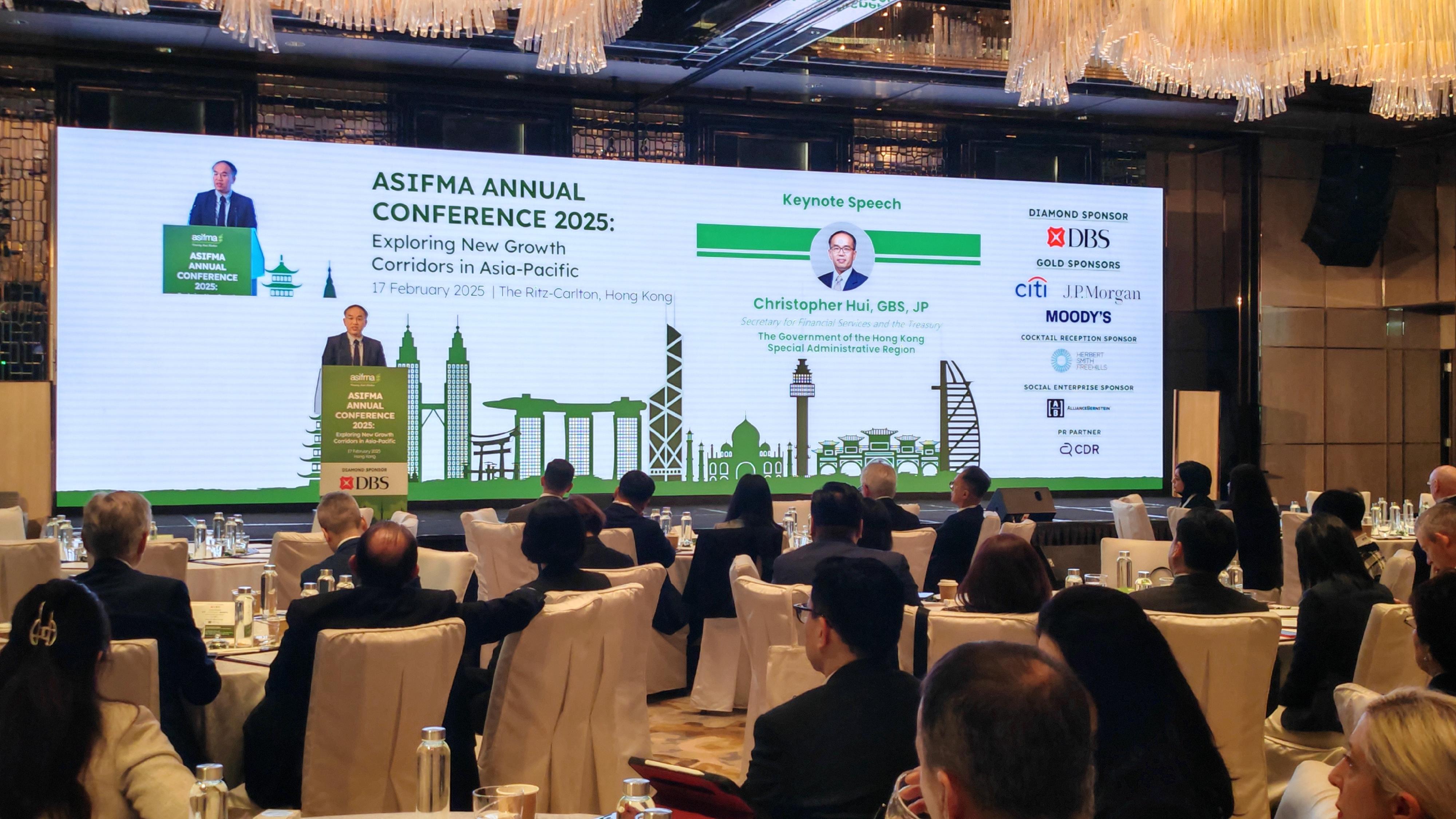
Hong Kong remains a prime location and platform for international enterprises and investors to access the vast investment opportunities in the Chinese mainland and other parts of Asia, Hong Kong Special Administrative Region government officials and financial regulators said Monday.
The city will continue to be an ideal gateway connecting the mainland’s capital market with the rest of the world, and providing investors with a preferred platform to tap opportunities in the mainland, the Guangdong-Hong Kong-Macao Greater Bay Area, the Middle East and the Association of Southeast Asian Nations, Secretary for Financial Services and the Treasury Christopher Hui Ching-yu said at the Asia Securities Industry & Financial Markets Annual Conference.
“Despite the complex political and economic environment, Hong Kong is actively integrating into and welcoming the huge opportunities brought by international development strategies,” Hui said.
ALSO READ: Experts call for bigger HK role in international tech collaboration
The financial services chief stressed that the SAR government is committed to increasing Hong Kong’s commodity storage capacity.
“The capacity not only concerns precious metals but also base metals, for better serving mainland companies engaged in international commodity trade. The government will engage the London Metal Exchange to set up approved warehouses in Hong Kong,” Hui said.
READ MORE: Chan: Bonds to support Northern Metropolis projects
The government set up a working group to promote the development of the gold market at the end of last year, mulling how to expand the scale of supporting services and financial services as well as derivative transactions related to increasing gold holdings.
“The reorganization of the global supply chain, the transformation of the economic and geopolitical landscape, and the changes in investment and consumption patterns led to more frequent economic interactions between the Chinese mainland and ASEAN, and Hong Kong can use its traditional advantages as a financial intermediary to play a role in the future,” Hong Kong Monetary Authority (HKMA) Chief Executive Eddie Yue Wai-man said at the conference.
Many mainland enterprises are expanding overseas, while Asian investors and enterprises are also seeking to develop business in the mainland, Yue said, so that Hong Kong needs to better understand the relevant markets and demonstrate its advantages and capabilities.
READ MORE: HKSAR universities in bid to draw more mainland students
Hong Kong handles about 75 percent of offshore renminbi transactions, mainly related to trade and investment, Yue said, and Hong Kong’s extensive offshore renminbi liquidity enables the city to provide the most effective renminbi financing solutions, enabling ASEAN importers and exporters to settle transactions with the mainland in offshore renminbi more conveniently.
“When the renminbi gains greater recognition as an international currency, Hong Kong’s growth in trade finance business becomes more significant,” Yue argued.
READ MORE: ‘US tariff impact limited as HK firms pivot to emerging market’
But the HKMA chief executive pointed out that the SAR needs to improve digitalization, sustainability and deepening engagement with other markets and central banks.
He emphasized the importance of digitalization and innovation for reducing costs, improving efficiency, enhancing the security and reliability of financial services, and supporting regional trade and investment. The HKMA is experimenting with digital use cases in the areas of trade and supply chain finance through the Project Ensemble sandbox.
It also published a proposal last year to consolidate Hong Kong’s position as a sustainable finance center in the region.


